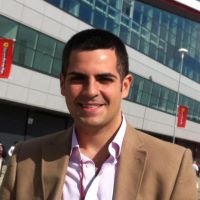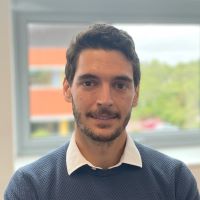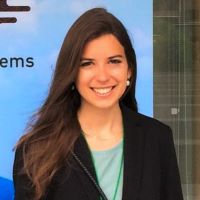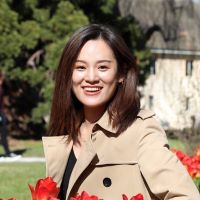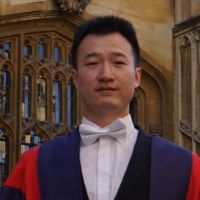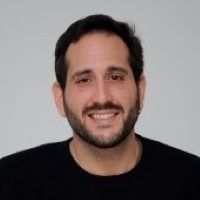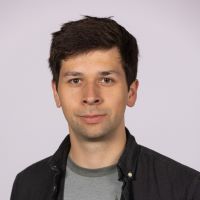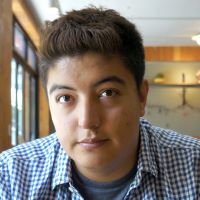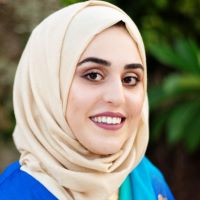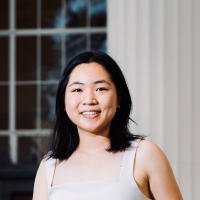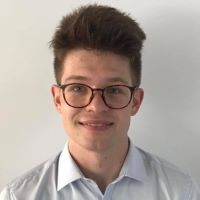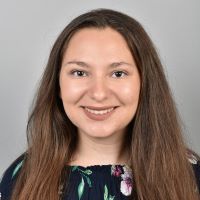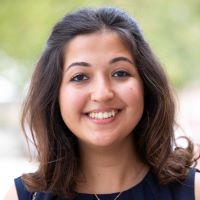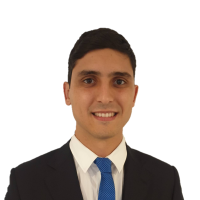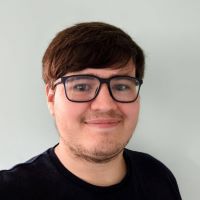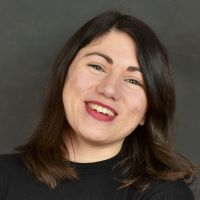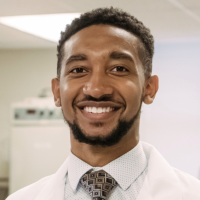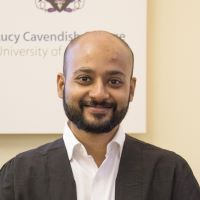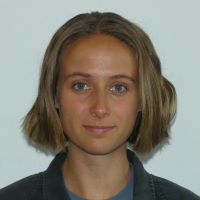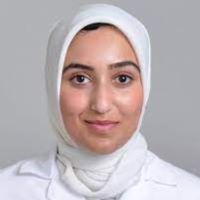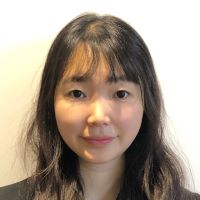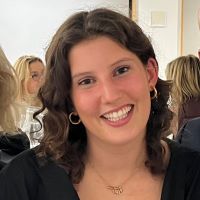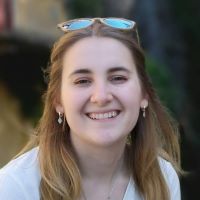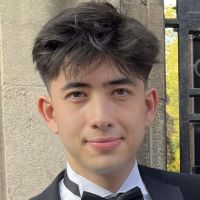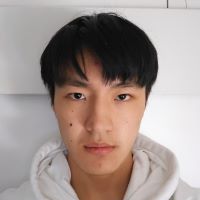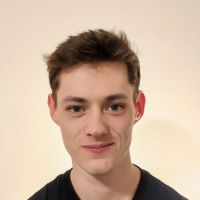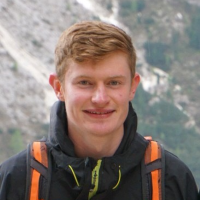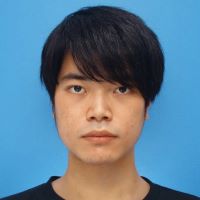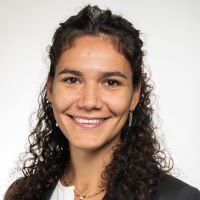Leadership Team
|
George Malliaras is the Prince Philip Professor of Technology at the University of Cambridge. He received a PhD from the University of Groningen and did a postdoc at the IBM Almaden Research Center. Before joining Cambridge, he was a faculty member at Ecole des Mines de St. Etienne and at Cornell University, and served as the Director of the Cornell NanoScale Facility. His research has been recognized with awards from the European Academy of Sciences (Blaise Pascal Medal), the Materials Research Society (Mid-Career Researcher Award), the New York Academy of Sciences (Blavatnik Award for Young Scientists), the US National Science Foundation (Faculty Early Career Development Award), and DuPont (Young Professor Award). He was awarded an Honorary Doctorate from the University of Linköping (Sweden), elected Fellow of the Materials Research Society and of the Royal Society of Chemistry, and is a member of the Academia Europaea and of the European Academy of Sciences. Email: gm603@cam.ac.uk • Tel:+44 1223 748312 • @georgemalliaras |
||
|
Damiano G. Barone is a surgeon-scientist with an interest in tackling basic and translational challenges for the development of the next generation of neural bioelectronics. He received his medical degree from the University of Naples ‘Federico II’ (Italy), PhD from the University of Cambridge (UK) and FRCS (Neurosurgery) from the Royal College of Surgeons of England. He has been training as a specialist neurosurgeon between Liverpool and Cambridge, with a subspecialist interest in peripheral and functional neurosurgery. He has been awarded funding from Wellcome Trust, NIHR, MRC, AMS and other major funding bodies. Damiano works on tackling basic and translational challenges for the development of the next generation of neural bioelectronics. Email: dgb36@cam.ac.uk • Tel: +44 1223 762412 • @baronedg |
||
|
Alejandro Carnicer Lombarte is a Senior Research Associate in the Department of Engineering. He received his BA in Biological Natural Sciences from the University of Cambridge in 2013 and an MSc in Neuroscience from University College London in 2014. Through the MRC/Sackler Doctoral Training Programme, Alejandro studied the link between mechanics and implant rejection, and developed chronically-stable soft neural implants as part of his PhD. As a postdoctoral researcher at the Bioelectronics Laboratory, Alejandro develops implantable devices to interface with the nervous system for therapeutic and research applications as a Wellcome Trust Junior Interdisciplinary Fellow and a Borysiewicz Interdisciplinary Fellow.. Email: ac723@cam.ac.uk • @AlejCarnicer |
Research Associates
|
Scott T. Keene received his BA in Materials Science and Engineering from the University of Washington in 2015. In 2020, he received his Ph.D. in Materials Science and Engineering from Stanford University where he worked in Prof. Alberto Salleo’s group as a Stanford Graduate Fellow. During his doctoral training, Scott developed wearable biosensors for detection of analytes in sweat as well as organic neuromorphic devices for artificial neural network accelerators and neurological interfacing. His current research in the Bioelectronics Laboratory focuses on understanding the fundamental physics of electrochemical doping in organic mixed ionic-electronic conductors. Email: stk30@cam.ac.uk |
||
|
Amparo Güemes González received her B.S. in Biomedical Engineering (2016) from Polytechnic University of Madrid (Madrid, Spain), and her M.S. in Biomedical Engineering (2017) and PhD in Electrical Engineering (2021) from Imperial College London (London, UK), where she was supervised by Prof Pantelis Georgiou. Amparo’s PhD research focused on the design of mathematical models of the neural regulation of glucose homeostasis. During her doctoral training, Amparo was a visiting PhD research fellow in the Computational Sensory-Motor Systems Lab led by Prof Ralph Etienne-Cummings at Johns Hopkins University, where she gained knowledge on the in vivo impact of neural stimulation on blood glucose fluctuations. As a postdoctoral 1851 Research Fellow at the Bioelectronic Lab, Amparo aims to develop advanced algorithms and neurotechnology to be integrated into a closed-loop platform that improves glucose control for diabetes. Email: ag2239@cam.ac.uk |
||
|
Chaoqun Dong received her doctoral degree in Materials Science and Engineering from École Polytechnique Fédérale de Lausanne (EPFL), Switzerland in 2021. Her PhD research in Prof. Fabien Sorin’s group focused on design, scalable fabrication and application study of soft electronic multi-material fibers and textiles. Funded by the Swiss National Science Foundation (SNSF) Early-postdoc Mobility Program, she started her postdoctoral research at the University of Cambridge in 2021. In 2023 she was awarded the Marie Sklodowska-Curie Actions (MSCA) Postdoctoral Fellowship to support her current research on the development of soft robotic actuators for minimally invasive neural interfaces. Email: cd779@cam.ac.uk |
||
|
Xudong Tao received his bachelor’s degree (2016) from the University of Manchester and then a master’s degree (2017) from Imperial College London. Afterwards, he moved to Oxford for his PhD degree. At Oxford, he was supervised by Professor Hazel Assender, investigating the roll-to-roll manufacture of flexible/wearable thin-film electronics (e.g. thermoelectric generators). After receiving his doctoral degree (2021), he started a postdoctoral project studying the HiTUS technique at Oxford in collaboration with Plasma Quest Ltd. At Cambridge, Xudong works as a research associate in the Bioelectronics Laboratory since 2022 focusing on an implantable drug delivery device for brain tumours. Email: xt240@cam.ac.uk |
||
|
Antonio Dominguez-Alfaro received his BSc in Chemical Engineering (2012), MSc in Chemistry (2013) and MSc in Industrial Engineering (2015) from the University of Huelva. During this period he was a member of the Organic Synthesis and Photochemistry Lab and he worked in the synthesis of new two-photon absorption fluorescence probes for bioimaging. In 2021, he received his PhD in Applied Chemistry and Polymeric Materials from the University of Basque Country. His PhD project focussed on the development of innovative methodologies for the manufacturing of 3D scaffolds composed of conducting polymers and carbon nanomaterials for tridimensional cellular cultures. After his thesis, he joined a one-year post-doc in the Biomolecular Nanotechnology group at CIC biomaGUNE. He worked in the synthesis of hybrid materials composed of conjugated polymers and engineered recombinant proteins. Currently, Antonio is a Margarita Salas Fellowship in the Bioelectronics laboratory, his research is focused on the integration of 3D printing and conducting polymers with microfabrication processes and bio-sensing devices. |
||
|
Tomi Baikie received his BsC in Mathematics and Physics from the University of St Andrews. He completed his thesis at the Cavendish Laboratory working with Akshay Rao and Neil Greenham at the University of Cambridge. Tomi’s PhD focused on ultrafast spectroscopy elucidating the nature of charges in photosynthetic systems, investigating electronic-ionic conductors through transient surface photo-voltage measurements, and a theoretical and experimental investigation into solar concentrating systems. Email: tb589@cam.ac.uk |
||
|
Marco Vinicio Alban-Paccha received his BEng in Mechatronics Engineering (2013) from the Armed Forces University – ESPE (Quito, Ecuador) and his MEng in Micro/Nano Systems (2018) from Korea University (Seoul, Korea), where he worked on OLED material optimization. He then moved to the Korea Advanced Institute of Science and Technology (Daejeon, Korea), where he received his PhD in Electrical Engineering (2022) advised by Prof. Seunghyup Yoo. Marco's doctoral research was on the use of thin dry electrodes and wearable electronics for cardiovascular sensing. Currently, Marco is doing postdoctoral research at the University of Cambridge in the area of wearable sensors as part of the ADVANTAGE research consortium, part of the UK Advanced Pain Discovery Platform for monitoring and treatment of pain. Together with the Pain Group in the Department of Anaesthesia, he aims to develop wearable and ML-powered solutions to detect, classify, and predict pain episodes in humans. Email: ma2035@cam.ac.uk |
||
|
Tobias Naegele received his PhD in Bioelectronics at the University of Cambridge. His PhD focussed on implantable iontophoretic drug delivery devices for brain cancer therapy and resulted in a patented medical device prototype. Tobias is currently a NanoDTC Nano Futures Leadership Prize Fellow which is awarded to exceptional researchers enabling the translation of cutting-edge nanoscience research. His current work focusses on ultra-low frequency electric field generation in electrolytes for medical applications and he conducts an in vivo brain cancer therapy study. Additionally, Tobias is developing implantable organic electrochemical transistor arrays for peripheral nerve signal recording. He holds a bachelor’s degree in Physics from the Rheinische Friedrich-Wilhelms-University of Bonn, a master’s degree in Physics from Imperial College London and a Master of Research in Nanoscience and Nanotechnology from the University of Cambridge. Tobias is Director of Studies in Physics and Fellow of Lucy Cavendish College. Email: ten26@cam.ac.uk |
||
|
Kian Kadan Jamal received her BSc. in Chemical Engineering from Arial University, and her MSc and Ph.D. in Materials Science and Engineering from Tel Aviv university in Israel, where she was advised by Prof. Yosi Shacham Diamand. Kian’s Ph.D. research focused on electrical monitoring methods, based on electrical sensors with low-cost electronics, for a novel unified model to investigate electrical impedance spectroscopy (EIS) using an ultra-wide-band, 4Hz to 20 GHz equivalent electrical circuit. Kian is work on developing a new method to deliver Electrotherapy to Glioblastoma (GBM). Her PostDoc is supported by the Blavatnik Cambridge fellowship and the President of Tel Aviv University Scholarship. Email: kiankadan@mail.tau.ac.il |
Graduate Students
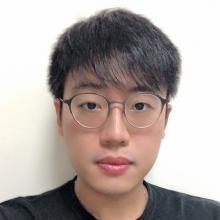 |
Yi-Lin Yu received his medical degree (M.D.) from National Defense Medical Center, Taipei, Taiwan. He completed the training course of residency and chief residency in the department of Neurological Surgery in Tri-Service General Hospital, Taiwan in 2017. He worked for Tri-Service General Hospital Penghu branch as an attending neurosurgeon since 2017 to 2019. As a PhD student, Yi-Lin is doing researches on biohybrid neural interface for restoration of neurological deficits such as hearing loss and spinal cord injury in collaboration with Prof. Manohar Bance. Email: yly26@cam.ac.uk |
|
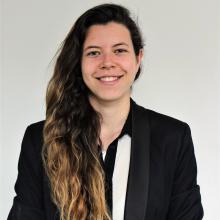 |
Poppy Oldroyd received her integrated MEng in Biomedical Engineering from Imperial College London in 2020, where she specialised in bioelectronic engineering. Her Master's dissertation focused on electrical stimulation protocols for peripheral nerve repair. As a PhD student, Poppy is working in collaboration with Johnson Matthey to investigate composites of biocompatible conductive polymer and nanoparticles on JM-developed flexible electrode technology. Poppy was awarded an 1851 Royal Commission Industrial Fellowship to support her PhD research. Email: pjo38@cam.ac.uk |
|
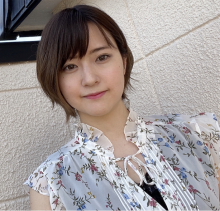 |
Misaki Inaoka received her B.A. in Human Sciences from Waseda University, Japan, in 2017. In 2020, she obtained her M.Eng. from Osaka University, Japan. During her master’s programme, she worked as a research assistant at the National Institute of Advanced Industrial Science and Technology (AIST). She developed a system that can generate a pseudo-environment for evaluating the noise immunity of biosensors. Email: mi362@cam.ac.uk |
|
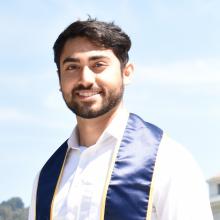 |
Asmaysinh Gharia received his bachelors degree in molecular and cell biology from the University of California Berkeley in 2018 with an emphasis in immunology. After graduation, he worked in developing microfluidic interfaces for silicon photonic biosensors at the University of California San Francisco with the ultimate goal of creating implantable nanoscale devices for highly personalized cancer therapy. He joined the bioelectronics lab in 2020 as a fellow of the National Institutes of Health (NIH)-Oxford-Cambridge Scholars Program. As a PhD student, Asmaysinh strives to develop a MEMs platform to efficiently generate cellular immunotherapies in collaboration with Dr Iain Fraser at the NIH. Email: aag63@cam.ac.uk |
|
|
Amy Jin received her S.B. in Biological Engineering and Electrical Engineering & Computer Science from the Massachusetts Institute of Technology (MIT) in 2021. As an undergraduate, she worked on targeted drug delivery to the gastrointestinal tract, focusing on hydrogel-based microbial delivery. As a PhD student, Amy seeks to develop biohybrid neural implants that can form a living interface with the brain to restore function after injury. Email: atj30@cam.ac.uk |
||
|
Filip Wronowski received his BA in undergraduate Medicine and Engineering from the University of Cambridge in 2020. He is now pursuing the MB PhD course where his Clinical Medicine studies are interspersed with PhD work in Electrical Engineering. His project focuses on investigating foreign body response to neural implants and using electrical stimulation to minimize scar formation. Email: fw331@cam.ac.uk |
||
|
Stefany Kissovsky received her BEng in Electrical and Electronics Engineering, from University of Southampton, in 2020. Her final year project was based on developing a point-of-care respiratory sensor and COMSOL modelling. She undertook an internship at the CMOS Sensors Group in STFC at Harwell Oxford Centre, where she worked on X-Ray CMOS sensors. She joined the CDT in Sensor’s Technology in 2020 and worked on integrating microfluidics with neuronal cell cultures for studying Tau pathology. Her current PhD research is focused on designing, fabricating and bio-functionalising organic electrochemical transistors (OECTs) for studying cholesterol metabolism in Alzheimer's disease in collaboration with Prof. Gabriele Kaminski. Email: sjk96@cam.ac.uk |
||
|
Belquis Haider is a PhD student with a mechanical engineering background triple concentration in design, mechatronics, materials, and manufacturing (BSc American University in Cairo, 2019), and an EU-commission funded photonics technologies MSc, specialised in photonics mater and ultrafast lasers (Aix-Marseille and Tampere Universities, 2020/1). During her undergraduate degree she also worked at the University of Leeds on the integration of soft tactile sensors into hand splints and established a system for data acquisition. This was a collaborative project with the University of Oxford and Imperial College London. She also had experience working in collaboration with the Leeds Teaching Hospitals to develop a soft passive rehabilitation mechanism for Brachial Plexus injured patients. During her master’s degree, her experience involved fabricating photoresponsive liquid crystal networks and designing, synthesising, and testing DNA nanostructures to enhance a super-resolution microscopy technique (DNA-PAINT) in Tampere and Cambridge. The focus of her PhD research is on developing a platform to study neurodegenerative disease - integrating technologies such as microfluidics, optogenetics, microelectrode arrays, and super-resolution microscopy working in collaboration with Prof. Gabriele Kaminski. Email: bh487@cam.ac.uk |
||
|
Ruben Ruiz-Mateos Serrano is a PhD student at the University of Cambridge and part of the joint Cambridge/UCL Connected Electronics and Photonics CDT program. He received his MEng in Biomedical Engineering from Imperial College London (2021) where he was supervised by Prof. Emmanuel Drakakis. His final year masters project focused on the design of neuromorphic biomimetic circuits which replicate the exact dynamics of the Nobel Prize winning Hodgkin Huxley equations on neuronal dynamics by means of ultra-low-power, microelectronic integrated circuits. As part of the CDT, Ruben received a MRes from the University of Cambridge (2022) during which he worked in a joint project with Prof. Demosthenous from UCL to implement an ultra-low-power, microelectronic chip that performs analogue signal processing of photoplethysmography measurements to predict blood pressure. His interests include the design of ultra-low power microelectronic biocircuits, that is, topologies which replicate the behaviour of biological systems with very high power and area constraints. His current research involves the design and implementation of a non-invasive and portable diagnostics device for ECG imaging based on body surface potential mapping. Email: rr632@cam.ac.uk |
||
|
Luke Gatecliff studied Electrical and Electronic Engineering, and Bioengineering in Cambridge. His project explores the effect of ion selective membrane and solid electrolyte films on OECT sensor performance. Email: lg570@cam.ac.uk |
||
|
Salim El Hadwe is a neurosurgical trainee who finished his medical education at the Aristotle University of Thessaloniki. He pursued his academic studies at the same university, where he received his master's degree in medical research methodology with an emphasis on neurosurgical clinical practice. He finished his first year of general surgery residency at the Greek state hospital in Kavala. His training in neurosurgery continued in Belgium, where he spent three years at the ERASME university hospital in Brussels and one year at the Marie-Curie hospital in Charleroi. He became a Ph.D. candidate and a clinical research associate at the Cambridge University department of clinical neurosciences. His main research interests are in neural electrode interfaces and neural bioelectronics with applications in minimally invasive spinal cord stimulation and recording spinal cord activity in physiologic and traumatic settings. Email: se471@cam.ac.uk |
||
|
Margaux Forner is a PhD student with background in Microelectronics and Computer Science. She studied maths, physics and engineering in undergrad part I at lycée Saint-Louis, Paris, and did part II at the Ecole des Mines de Saint-Etienne (EMSE). She pursued an integrated masters’ in engineering at EMSE where she specialized in Microelectronics and Computer Science (MEng) and a double diploma at the University of Cambridge (MPhil) in the Bioelectronics laboratory. During her PhD, she is working on biohybrid neural implants for functional restoration after a traumatic injury. Email: moaf2@cam.ac.uk |
||
|
Christopher Slaughter is an Engineering PhD Student at the University of Cambridge and a member of the 2023 cohort of the Gates-Cambridge Scholars. He earned his B.S. in Computer Engineering from the University of Maryland, Baltimore County (UMBC). During his undergraduate studies, Slaughter conducted research on the development of a non-invasive glucose biosensing platform at the Center for Advanced Sensor Technology (CAST). Additionally, he worked with the Tufts University Machine Learning Group on using functional near-infrared spectroscopy (fNIRS) data to develop classifiers for mental workload. Currently, as a PhD Student, his research is focused on developing wearable technologies for the early diagnosis of neuromuscular disease. Email: ciyfs2@cam.ac.uk |
||
|
Sulay Vora is a PhD student with an Electrical Engineering background from VIT University, India, and has garnered valuable industry experience as a Silicon Validation Engineer at leading companies like Cadence, Qualcomm, and Intel. With a keen interest in biomedical applications, he pursued an MPhil in Biotechnology at the University of Cambridge, working on organic electrochemical transistors to investigate cholesterol metabolism in Alzheimer's disease (AD). Presently, his doctoral research at the University of Cambridge focuses on the integration of micro-electrode arrays and microfluidics with novel disease models to study Amyloid-Beta pathology in AD working in collaboration with Prof Gabriele Kaminski. Email: skv29@cam.ac.uk
|
||
|
Joseph Asfouri is an MPhil student with a background in electrical engineering and neuroscience. He graduated in May 2023 from Rice University, where he worked on magnetogenetics with Dr. Jacob Robinson. He has also investigated the neural basis of mood in a clinical trial of closed-loop deep brain stimulation for depression (Baylor College of Medicine) and the role of visual feedback in brain-computer interface learning in monkeys (University of Washington). Beyond engineering therapies for neurological and neuropsychiatric diseases, his interests include science policy and commercialization for safely and efficiently translating these innovations from the lab to the clinic. During his year in the Bioelectronics Lab, he plans to contribute to a biohybrid stem cell therapies. Email: jaa79@cam.ac.uk |
||
|
Halcyon Brown received her B.A. in Computer Science from Middlebury College, United States and has five years of experience in emergency services. She is pursuing a Master's in Biotechnology and will be working with Dr Chaoqun Dong on the development of soft actuator-assisted bioelectronic implants. Email: heafb2@cam.ac.uk
|
||
|
Moleca Ghannam is a neurosurgical trainee who is pursuing an MPhil at the University of Cambridge in clinical neuroscience focused on bioelectronics. Her current project is focused on novel uses and design of spinal cord stimulation and neuromodulation. Email: mmg53@cam.ac.uk |
Research Assistants
|
Chaeyeon Lee received her first MSc in Applied veterinary medicine from Konkuk University in South Korea in 2020, and her second MSc in animal behaviour applications for conservation from Anglia Ruskin University in 2021. She has studied in animal behaviour and welfare in experimental animals since her BSc. She has an experience as a research assistant in the in-vivo study at the department of Neurosurgery at Severance hospital in South Korea. Her role in the Bioelectronics lab involves testing prototype neural implants in-vivo and communicating the results to the team. Email: cl955@cam.ac.uk |
Undergraduates
|
Gemma Jacobson is a 4th year student studying Electrical and Electronic Engineering. Her project will be developing a cuffless bio-potential based system for blood pressure estimation. Email: gnj22@cam.ac.uk |
||
|
Lizzie Salter is a 4th year student studying Instrumentation and Control. Her project will be developing a system to automatically characterise electrochemical biosensors. Email: ers66@cam.ac.uk
|
||
|
Charlie Brunt is a 4th year student studying electrical and electronic engineering. His project will involve the development of a system to wirelessly transmit cardiac activity biosensor data to a nearby device. Email: cwhb2@cam.ac.uk |
||
|
Peter Li is a 4th year Engineering student, specialising in Information and Computer Engineering. Peter's project is on machine learning models for predicting glucose levels from chronic vagus nerve recordings. Email: cl854@cam.ac.uk |
||
|
Adam Pullin is a 4th year student studying Electrical and Electronic Engineering. His project involves developing a long-term wearable cardiac activity monitor. Email: alp78@cam.ac.uk |
Visitors
|
Stephen O'Neill received his integrated MEng in chemical engineering from the University of Edinburgh in 2020. He undertook his MEng thesis project at Stanford University, which involved the development and integration of organic electronic materials for the wireless operation of biomedical devices. As a PhD student, Stephen is working on developing electrically conductive hydrogel materials for bioelectronic applications, in a collaboration with Prof. Oren Scherman in the Department of Chemistry. Email: so423@cam.ac.uk |
|||
|
Nerea Pascual Frías received her B.S in Biomedical Engineering (2020) from TECNUN-University of Navarra (San Sebastián, Spain), and her M.S in Biomedical Engineering (2021) from Polytechnic University of Valencia. Her Master’s dissertation focused on the study of cell differentiation and conductive growth substrates for cardiac regeneration. Her current PhD, supervised by Prof. Maurizio Prato is focused on the development of 3D neuronal monitoring platforms for electrochemical sensing of neurotransmitters for drug testing. Email: np615@cam.ac.uk
|
|||
|
Viviana Rincón Montes received her BSc. in Electronics and Computer Engineering (2013) with honours from the Instituto Tecnológico y de Estudios Superiores de Monterrey (Mexico). She received her MSc. in Biomedical Engineering in 2016 and in 2021 she received her PhD in Engineering (Dr.-Ing.) with Summa Cum Laude recognition from the RWTH Aachen University and the Institute of Bioelectronics (IBI-3) at Forschungszentrum Jülich (Germany). From October 2020 she continued as a postdoctoral researcher, and since October 2021 she has been a Junior Group Leader of the ‘In vivo Neuroelectronics’ group at IBI-3 and an Associated Scientist of the InnoRet Vision Research Training Group (RTG) 2610 in Germany. Her research interests comprise the development of implantable stealth neurotechnology to understand and restore lost neural functions in the body, with applications including vision restoration and pain. Currently, she is a Visiting Research Fellow at the Bioelectronics Laboratory, focusing on the development of implantable biohybrid neurotechnologies for the central nervous system. Email: vr378@cam.ac.uk |
|||
|
Kyohei Ito received his Bachelor of Engineering from the University of Tokyo. Currently working on his master's research focusing on the stability of substrates and connections in wearable devices. Emai: ki291@cam.ac.uk |
|||
|
Lara Laamari received her BSc in Microengineering (2021) from the École Polytechnique Fédérale de Lausanne (EPFL), Switzerland, where she is now pursuing a Master's in Microengineering with a specialization in Biomedical Technologies. Currently, she is a visiting student at the Bioelectronics Laboratory, working on her master’s thesis in "Redox Flow Iontophoresis for Tissue Stimulation". Past projects she has worked on include flexible implantable temperature sensors and microfluidics for single-cell technology. Email: ll761@cam.ac.uk |
Project Coordinator/Group Administrator
|
Kirsty Shepherd has been working in an administrative role within the University of Cambridge since 2004. She is PA to Prof. Malliaras and Project Coordinator for the EPSRC IRC in Targeted Delivery for Hard-to-Treat Cancers. She joined the Division of Electrical Engineering early in 2017. Email: kjs64@cam.ac.uk • Tel:+44 1223 748380 |


